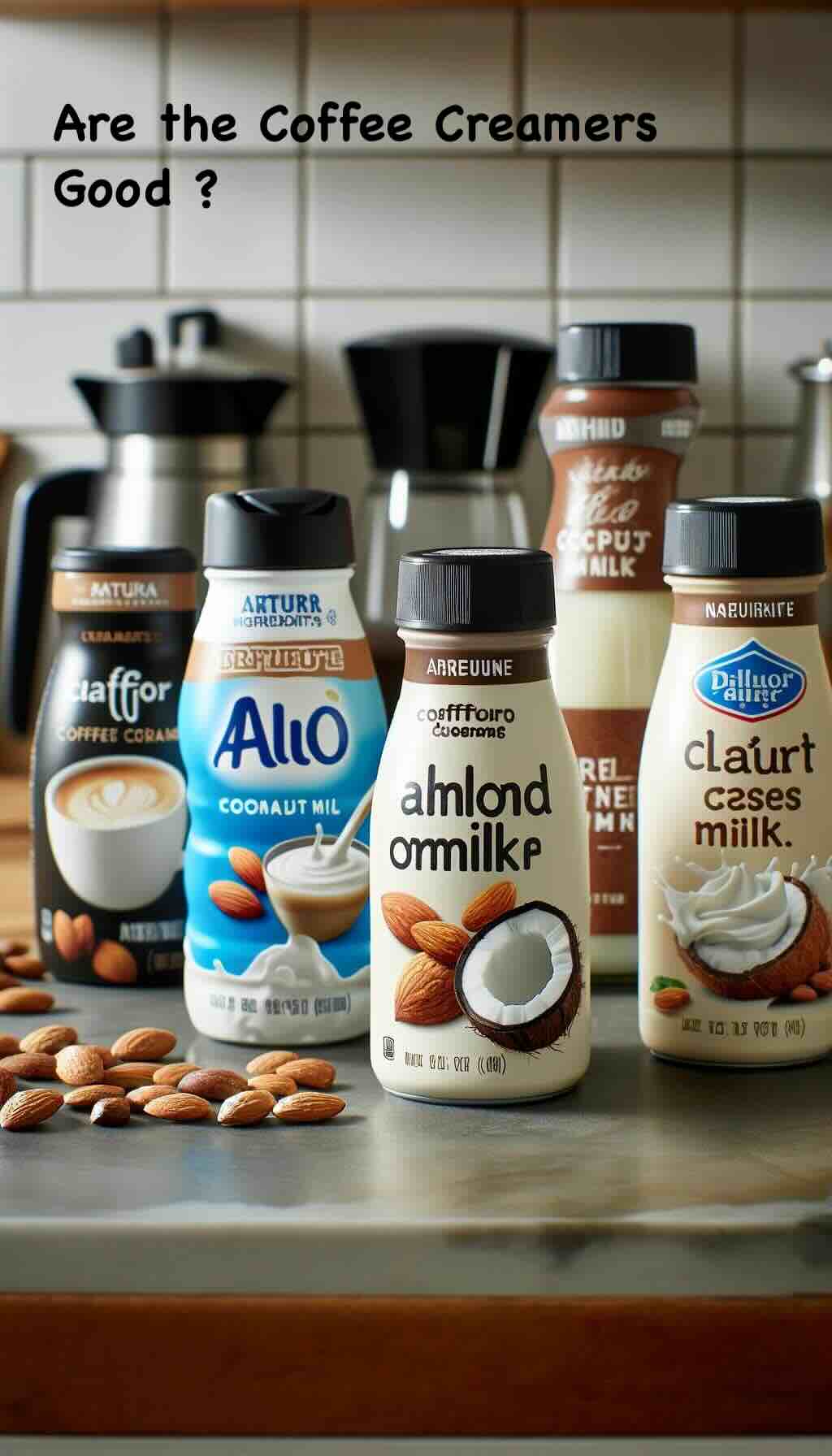
Coffee creamers, those delightful concoctions that transform our morning brew from mere beverage to creamy delight, have become a staple in kitchens and coffee shops around the globe. Yet, as our understanding of nutrition evolves, so too does our scrutiny of what goes into our cup. This exploration into the world of coffee creamers will sift through the sweet from the savvy, guiding you to make choices that enhance both the taste and healthfulness of your coffee ritual.
The Rise of the Creamer Culture
Coffee creamers surged in popularity for their ability to add a smooth, rich texture and variety of flavours to coffee, making every sip customizable. From the velvety vanilla to the decadent caramel, the options are nearly endless. However, this customization comes with a cost, often in the form of added sugars, artificial flavors, and trans fats.
The Sweet Side of Things
Many coffee creamers, particularly the flavoured varieties, pack a sugary punch. While they may elevate the taste, they can also add unnecessary calories and sugar to your diet. Dietitians and health experts warn against the long-term consumption of high-sugar additives, linking them to increased risks of obesity, diabetes, and heart disease.
Creamer Alternatives: A Healthier Sip
As demand for healthier options grows, the market has responded with an array of alternative creamers. These include non-dairy varieties made from almond, coconut, and oat milk, which offer the creaminess of traditional creamers without the lactose. Unsweetened and sugar-free options also provide the flavour enhancement many desire without the spike in sugar intake.
Decoding Labels: What to Look For
Understanding what goes into your creamer can help you make informed choices. Look for creamers with minimal ingredients, avoiding those with high fructose corn syrup, artificial sweeteners, and trans fats. Instead, opt for creamers that list real milk, natural sugars, and natural flavours at the top of their ingredients list.
DIY Creamer: Customization in Your Kitchen
For those inclined towards a more hands-on approach, making your creamer at home can be a rewarding alternative. Combining milk or a milk alternative with vanilla extract and a sweetener of your choice (such as honey, maple syrup, or stevia) gives you complete control over the nutritional content, allowing for a healthier and equally delicious addition to your coffee.
The Bottom Line: Enjoyment with Awareness
Coffee creamers don’t have to be a guilty pleasure or a health hazard. By choosing wisely, reading labels, and perhaps even experimenting with homemade versions, you can enjoy the richness they add to your coffee without compromising your health. Remember, moderation is key. Balancing the flavours you love with the nutritional benefits that support your well-being can elevate your coffee experience to one that satisfies both palate and body.
Conclusion: Crafting the Perfect Cup
In the end, the choice of coffee creamer boils down to personal preference and health considerations. Whether you opt for a store-bought favourite or a homemade concoction, the goal is to enhance your coffee in a way that aligns with your dietary needs and flavour preferences. As we navigate the creamer aisle or craft our blends, let’s do so with an eye towards balance, making each cup a testament to our love for coffee and commitment to health.
10 FAQs for “Sip or Skip are the Coffee Creamers Good?”
What exactly are coffee creamers made of?
Coffee creamers can vary widely in their composition, including dairy and non-dairy bases, sugar, artificial flavours, and thickeners. Reading the label is key to understanding what you’re adding to your coffee.
Can coffee creamers affect my health?
Yes, depending on their ingredients. Creamers high in sugar and trans fats can negatively impact your health, while unsweetened and plant-based options may offer a healthier alternative.
Are non-dairy creamers better than dairy-based ones?
Non-dairy creamers can be a good option for those lactose intolerant or following a vegan diet. However, check the labels for added sugars and artificial ingredients, which can detract from their health benefits.
How can I choose a healthy coffee creamer?
Look for creamers with minimal ingredients, low in sugar, and without trans fats. Plant-based options like almond, coconut, or oat milk can be healthy choices if unsweetened or lightly sweetened.
Do coffee creamers expire?
Yes, coffee creamers do expire. Check the expiration date on the package, and once opened, consume within the recommended time frame.
Can I make my own coffee creamer at home?
Absolutely! Homemade coffee creamer allows you to control the ingredients, such as using your choice of milk, natural sweeteners, and flavours.
Are there any keto-friendly coffee creamers?
Yes, there are keto-friendly creamers available that are low in carbs and sugar, using sweeteners like stevia or erythritol instead of sugar.
What’s the difference between flavoured creamers and plain ones?
Flavoured creamers contain added flavours (natural or artificial) and often more sugar than plain ones, which are typically just dairy or non-dairy milk with minimal to no added flavours.
Can coffee creamers cause weight gain?
If consumed in large quantities, especially those high in sugar and calories, coffee creamers can contribute to weight gain. Moderation is key.
Are there any environmental considerations with using coffee creamers?
Yes, consider the packaging and production process. Opt for creamers with eco-friendly packaging or make your own to reduce waste.
Blog Tags
coffee creamers, health impact, dairy vs non-dairy, homemade creamers, keto options, sugar content, expiration dates, flavoured creamers, weight management, environmental considerations









